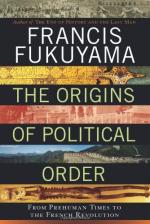|
This section contains 817 words (approx. 3 pages at 300 words per page) |

|
The French Revolution
Summary: Discusses the French Revolution. Examines the Third Estate, or the lower class of France, which composed 98% of France's population before 1789. Referencing the writings of Joseph Emmanuel Sieyes, attempts to prove that the Third Estate should have rebelled against the rich (nobility).
During the French Revolution, three writers composed pieces that opposed one another's opinions on the Third Estate, or the lower class of France. This group composed 98% of France's population before 1789. Joseph Emmanuel Sieyes was correct in his idea that the Third Estate should revolt against the clergy and nobility because they were not given rights, and they were the stability of France.
The Third Estate is everything in France because they compose the economy, completing all labour, as well as producing all goods and services. They are merchants and are they important in the steps between and including the production and consumption process. Also, the Third Estate supports all 4 classes of citizens, namely the wealthy farmers, industrial workers, their own class of merchants, and those who partake in specified services.
The Third Estate does jobs that the nobles and the clergy refuse to do, usually in the form...
|
This section contains 817 words (approx. 3 pages at 300 words per page) |

|


